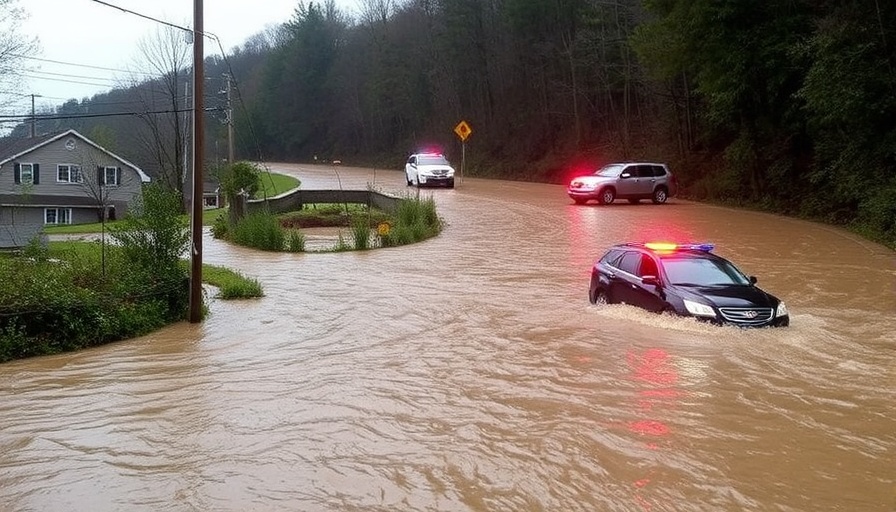
Why Cuts to Disaster Management Can Increase Risks
The safety of communities across the United States hangs in the balance as funding cuts to critical disaster management agencies threaten to amplify the effects of climate change. Emergency management expert Samantha Montano warns that recent layoffs and budget reductions will undermine the capabilities of organizations like the Federal Emergency Management Agency (FEMA) and the National Oceanic and Atmospheric Administration (NOAA). Without the vital data these agencies provide, emergency responders will be forced to operate without crucial guidance, jeopardizing lives as they confront increasingly volatile weather patterns.
The Dangers of Reduced Preparedness
As we enter what promises to be an intense hurricane and tornado season, the implications of these cuts become ever more urgent. Montano's pointed remarks emphasize that mismanagement of funding and resources could lead to catastrophic failures during future disasters. “Emergency managers will be operating blindly without the data that we have become accustomed to from NOAA,” she states. Without accurate forecasting, communities could face significantly higher death tolls in the wake of natural disasters.
Empowering Communities with Knowledge
The alarming trajectory of climate change, including the rising frequency of hurricanes and flooding, makes informed preparedness critical. It is essential for communities, especially in areas prone to natural disasters, to stay informed about how government actions impact their safety. Understanding these changes can empower residents to advocate for better funding and support for disaster preparedness programs. This knowledge is not just about survival; it's about resilience and adaptability in changing climates.
Historical Context: Lessons From the Past
Historical data shows that increased investment in disaster management correlates with reduced death tolls during extreme weather events. For example, various analyses reveal how improved forecasting and timely interventions from FEMA during catastrophic hurricanes previously resulted in lower fatalities. Conversely, when support waned, as seen in various events during the early 2000s, the outcomes were devastating—all reminders that preparation and funds are directly tied to survival in times of crisis.
Diverse Perspectives on Climate Change Responses
While some argue that reducing the size of governmental agencies could lead to improved efficiency, experts like Montano present a compelling counterargument that prioritizing agency cuts endangers lives. It’s a misconception that size and funding do not correlate with effectiveness; rather, substantial and sustained investment in disaster management has historically saved lives and mitigated destruction.
How Citizens Can Make an Impact Today
As we navigate our roles as individuals within a broader community, staying proactive in advocacy for robust disaster management funding is vital. Engaging with local representatives, supporting initiatives for sustainable disaster preparedness, and participating in community education programs are all ways citizens can contribute to enhancing resilience. Knowledge is power, and understanding the implications of governmental budgetary choices can lead to meaningful changes.
As we face the looming threat of climate change, it is crucial for professionals, residents, and policymakers to recognize that cuts to essential services like FEMA can lead to dire consequences. By rallying around the need for adequate funding and effective disaster management practices, communities can work towards a safer future, ensuring lives are saved and disasters are managed with efficiency.
The alarming predictions surrounding the potential rise in deaths due to diminished disaster preparedness call on each of us to become advocates for change. As concerned citizens, we must insist that agencies dedicated to protecting lives and maintaining safety receive the resources they need to function effectively. By prioritizing disaster readiness, we can combat rising threats posed by climate change.
 Add Row
Add Row  Add
Add 





 Add Row
Add Row  Add
Add 








Write A Comment